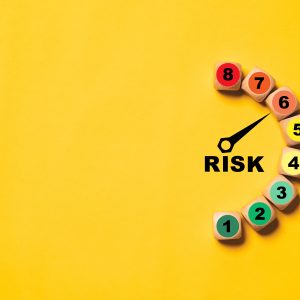I was recently talking to young events manager who had been asked to organise her company’s exhibition stand at a trade show in the USA. This was something she hadn’t done before so she wanted run a few things past a more experienced person, still not sure why she rang me!!
After we had talked through the normal events and exhibitions stuff, she asked me what she should do regarding the staff travelling out there. I was impressed, most people don’t think about the human element and how, as event managers what we can do to make life easier for travelling staff.
When staff are travelling on business, companies have a duty of care to ensure their safety as much as possible. When it comes to staff travelling to events I feel this responsibility should fall to the events manager.
They are grown adults i hear you cry, yes but I have seen even the most competent people loose all common sense when travelling to an event. Taking someone out of their comfort zone can have a massive impact, they may have a fear of flying, they maybe stressed or anxious at the thought of leaving loved ones or simply do not like to travel away from home.
Any good events manager will make sure they have a full understanding of the event, the area to which they are travelling and any other key factors that may effect staff when at the event.
With this is mind I have put together some advice for helping with staff safety when out on events.
1. Carry out a site visit if possible
If possible do a site visit to your location. By doing this you are able to take the journey that your staff will. You can tell first hand any possible problems that may arise and what are the best ways to move larger numbers of people around during the event. The site visit will also give you an opportunity to meet your suppliers face to face, helping you build your relationship with them and then ultimately if something does go wrong allows you to get their help.On a recent trip to Brazil I almost fell fowl of an airport taxi scan (jetlag can effect even the most seasoned pro) luckily I came to my senses before it all came to fruition, but now I can warn colleagues if they are travelling there about this and to beware. Arranging legitimate airport transfers is a must in certain countries and please ignore the manager who tells you it’s fine i will catch an Uber when I land, not on my watch!
2. Carry out a Risk assessment
Doing a thorough risk assessment will allow you to evaluate every potential situation that may arise. I don’t mean just the slips trips and falls that can happen at an event, but problems that can arise from travelling too. If there is a strike in an airport or civil unrest in a particular country, what would you do to help people get home? Planning for the worst case scenario is part of the job, a cheery thought I know, but you just never know anything could happen at anytime especially with events.
3. Do your health and visa homework
Make sure you put time aside to do some proper research into the place well before the event. Check if staff need vaccinations to enter the country and check the WHO website for any updates on things such as yellow fever. This changes all the time and a countries status can change overnight. Provide staff with the information in good time and advise them of where they can go should they need any vaccinations.
Check what Visa’s may be required and how long it takes to get them. The amount of times i have seen people run around in a panic and then rush to the nearest embassy for a last minute visa. Also remember to double check what passports people hold, I have seen someone he denied entry to a country because they thought they were entitled to the same privileges as a British passport holder because they had lived in the UK for 15 years. Nope, it’s your passports country of origin that counts not where you live!!!!
4. Provide useful information
Write some helpful tips about the place that you are visiting. By supplying details about local cultures and traditions can help people to fit in to a foreign environment very quickly. Speak to the local tourist board and they can provide you recommendations on places to visit and restaurants to eat in.
Contrary to belief, staff at events are not on a jolly. They generally work long hours either on the stand, networking or organising stuff for others. They have little time to explore and get their bearings so giving them a guide, map of the surrounding area can really go a long way. Even advice on getting around their immediate area and how much taxis etc should cost for certain journeys with safe time and stress.
Safety is paramount so check if there are any major incidents happening in the local area such as civil unrest and advise of this.
5. Know where everyone is
A smart events manager also should have the travel details of everyone such as flight numbers and arrival and departure times. This will enable you to check that everyone has arrived safely and also if there are any major incidents then you will be able to act accordingly. Ideally if you are not on site at the event, you should have a procedure for checking in, perhaps by getting everyone to text or email that they have arrived safely.
6. Brief staff accordingly
Prior to arrival at the venue I would carry out a briefing that all staff must attend. You bribe them will food and alcohol to get them there, but whatever you do ensure they attend. These briefings would include an overview of what the objectives for the team but more importantly the key safety information. Show the staff the layout of the area, the exact location of the stand and the emergency exits. If there are any issues at the event it can be good to buddy everyone up and ensure that people have each other’s mobile numbers.
Hopefully all of this will seem like common sense but it will make your life and that of other staff safer and less stressful.
Happy travels!






